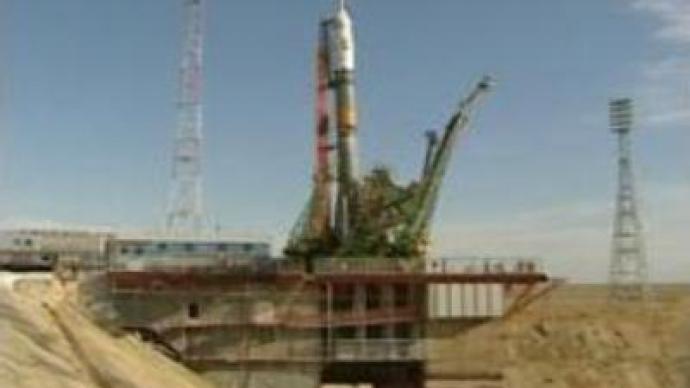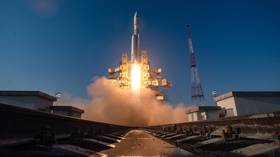Russia launches 3 global navigation satellites

The Russian Proton-K carrier rocket has blasted off from the Baikonur launching site in Kazakhstan with 3 global navigation satellites carried into orbit by the booster to help replenish the country's GLONASS navigation system.
The start-off happened, as scheduled, December 25 at 23.18 Moscow time, or 20.18 GMT. In space the three GLONASS satellites joined the 14 others already in orbit.GLONASS is the Russian equivalent of the United States' GPS, serving both military and civil users in Russia who need to position their location with pin-point accuracy. Europe has launched a similar project under the name of Gallileo.Russia first came up with the GLONASS satellite plan in the early 1980s and launched several satellites in 1993. But at this stage the project isn’t yet complete.After this launch Russia has 17 satellites in orbit, but the full system is designed to run on 24 GLONASS satellites. However, space experts in Russia say it can work on just 18. By the end of 2007 the system should be expanded to make sure there are 18 satellites in space, which will ensure continuous signal transmissions across the Russian Federation. The country will also work to update the GLONASS to increase it's lifespan from 7 to 12 years.More launches are planned for next year, and all 24 satellites sould be in orbit by 2009, as part of a fast-track expansion of the system. In 2009, when the full orbital grouping is in place, navigation will be available on a global scale. The Russian Defence Minister, Sergey Ivanov, has said that all limitations on the coordinates of GLONASS will be removed. It means no priority will be given to military users of the system, and the rate of preciseness will be the same for all the subscribers. This makes GLONASS different from the U.S.'s GPS, which has been used with maximum preciseness only by the U.S. military for national security reasons.
You can share this story on social media:












